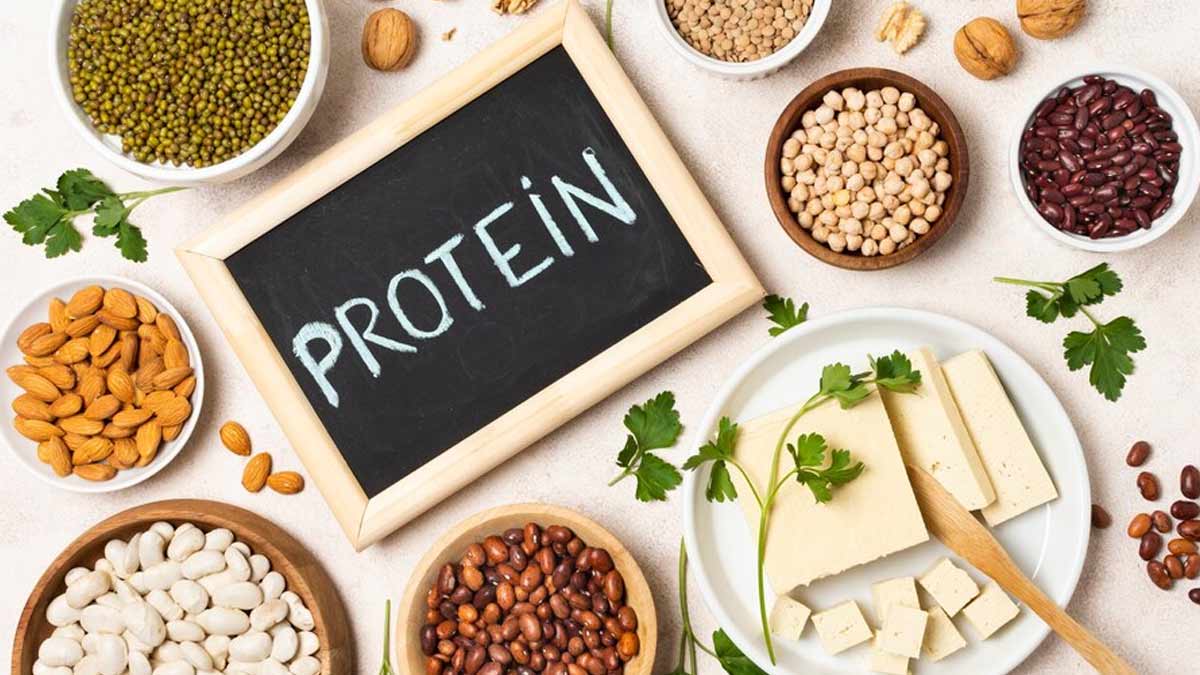
Protein is an important nutrient required by your body for performing essential functions, such as building and repairing tissues, regulating metabolism, and transporting substances. It is an important component of a nutritious diet, especially for people engaged in bodybuilding. However, did you know eating too much protein can cause side effects and lead to an increased risk of heart attack and digestive issues? We spoke to our expert Dr Ekta Singhwal, MSc Dietician, Ujala Cygnus Group of Hospitals, who explained the impact of consuming too much protein on your heart and digestive health.
Table of Content:-

According to Harvard Health Publishing, the Recommended Dietary Allowance (RDA) for protein suggests a modest intake of 0.8 grams per kilogram of body weight or approximately 0.36 grams per pound. However, during pregnancy, women's protein requirements increase. It is advised to consume 75-100 grams of protein daily to support the growth of foetal tissue, as well as the development of the placenta, breasts, and blood supply.
Side Effects Of Overconsumption Of Protein

Impact on Heart Health
One of the lesser-known risks of excessive protein intake is its potential impact on heart health. According to a 2024 study published in the journal Nature Metabolism, exceeding 22% of daily calorie intake from proteins could elevate the risk of atherosclerosis and potentially exacerbate the condition.
Moreover, as per findings from a 2010 study, consuming significant quantities of red meat and high-fat dairy products was associated with elevated risks of coronary heart disease in women.
Also Read: Vegetarian Diet: Here're 7 Protein-Rich Breakfast Options You Can Add To Your Diet
“High-protein diets, especially those rich in animal protein, often come with elevated levels of saturated fat and cholesterol. These components can contribute to the buildup of plaque in the arteries, a condition known as atherosclerosis, which can eventually lead to heart disease”, said Dr Singhwal. Additionally, high-protein diets may raise levels of certain compounds in the blood, such as homocysteine, which is associated with an increased risk of heart attack and stroke.
Furthermore, excessive protein intake may put a strain on the kidneys, as they are responsible for filtering waste products produced during protein metabolism. Over time, this increased workload can potentially lead to kidney damage and dysfunction, further exacerbating the risk of heart-related issues.
Digestive Distress

Another side effect of overconsumption of protein is its impact on your digestive health. “This is because proteins require more energy and time to digest compared to carbohydrates and fats. When large amounts of protein are consumed, especially in the absence of sufficient fibre and fluids, it can result in digestive discomfort, such as bloating, gas, and constipation”, highlighted Dr Singhwal.
According to a 2016 review by the Royal Society Of Chemistry, prolonged consumption of high levels of protein exceeding 2 kilograms (kg) per kg of body weight could result in digestive problems.
Moreover, certain protein sources, particularly those high in saturated fat, can exacerbate digestive problems. For example, fatty cuts of meat and fried protein-rich foods can contribute to inflammation in the digestive tract, worsening symptoms of conditions like Irritable Bowel Syndrome (IBS) and acid reflux.
Also Read: Protein Deficiency Can Cause Swelling In The Legs: Other Warning Signs To Note
Finding Balance
While protein is undoubtedly important for overall health, it's crucial to consume it in moderation and as part of a balanced diet. Rather than focusing solely on increasing protein intake, individuals should aim for a diverse range of nutrient-rich foods, including fruits, vegetables, whole grains, and healthy fats.
Bottomline
Dr Singhwal concluded, “While protein is a vital nutrient that supports numerous bodily functions, excessive intake can have detrimental effects on heart health and digestion. To mitigate these risks, it's important to maintain a balanced diet that includes a variety of nutrient-rich foods and to consume protein in moderation.”
[Disclaimer: This article contains information provided by an expert and is for informational purposes only. Hence, we advise you to consult your expert before making dietary changes, especially if you are dealing with any health issues.]
Also watch this video
How we keep this article up to date:
We work with experts and keep a close eye on the latest in health and wellness. Whenever there is a new research or helpful information, we update our articles with accurate and useful advice.
Current Version